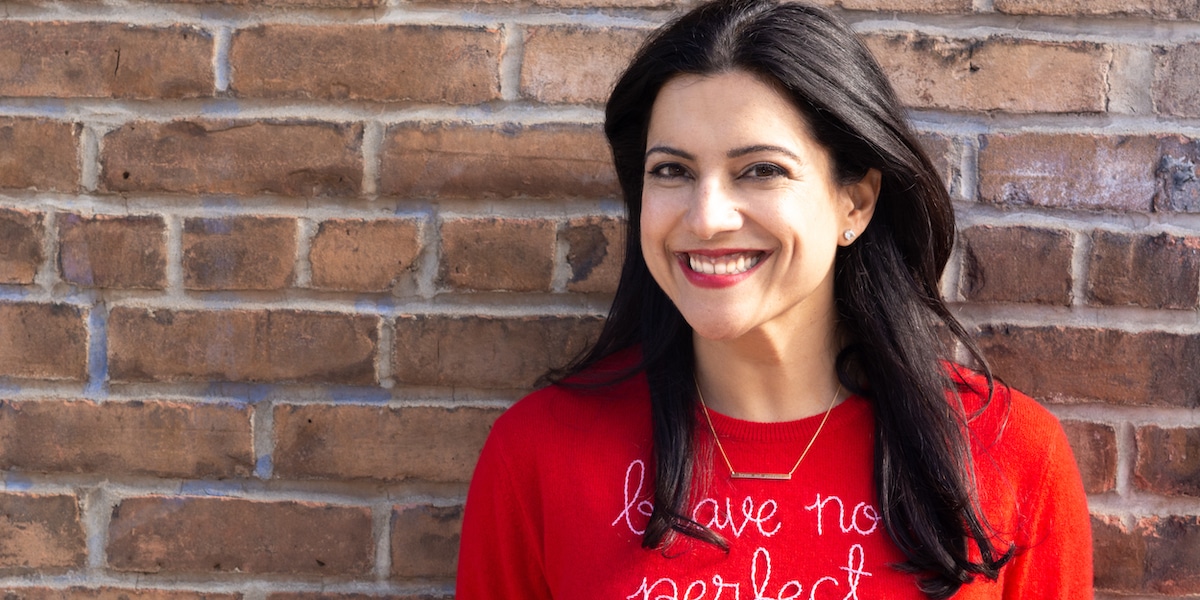Finding Your Bravery Now: A Conversation with Reshma Saujani
Reshma Saujani, founder and CEO of Girls Who Code and author of Brave, Not Perfect, recently spoke with the Conferences for Women, about perfectionism and bravery in a world turned upside down. The conversation has been edited for brevity.
CFW: You’ve talked about striving for perfection as an impediment to growth. In today’s extraordinary circumstances, perfection doesn’t seem remotely possible. But does it still play a role in how women are responding to the present moment?
Reshma Saujani: Perfectionism is totally at play. The coronavirus is very hard for perfectionists and extroverts. Extroverts for obvious reasons, and perfectionists want an A on everything. If you’re working from home, with kids and dogs in the background, it’s stressing you out. When perfectionists are dealing with uncertainty, it’s also really hard.
You have to honor what you’re feeling, but be brief. If you were supposed to be at a conference and you’re not there, acknowledge that sucks. Then let it go. Also, recognize moments when anxiety hits. For me, it’s at night. Doing meditation and breathing then is helpful.
The question I keep asking myself is: Who do I want to be when we are out of this? Who do I want to be as a leader, a partner, a mother? If I can ask that question and be committed to it, then I can also play. I’ve played three innings of Whiffle ball with my son. I’ve never done that before. I’m taking voice lessons. I’m serious about mastering TikTok dances with him. Play is so important because it builds bravery and courage.
CFW: How else do we find our bravery in these unprecedented circumstances?
Saujani: I’ve been thinking a lot about how you develop courage in a crisis. Some of the tactics I talk about in the book apply. You can’t be brave if you’re tired. So, what are the things getting in the middle of your sleep now? I think it’s important to put devices away. I was on a call with work colleagues and could hear CNN in the background. I said, ‘Shut it off. Today will be as bad as yesterday.’ Playing and doing something you suck at is also important. It’s relevant to bravery and building coverage.
CFW: Strength is another good word—something we would all consider a good thing to strive for. But can expecting yourself to be strong at all times be setting yourself up for failure? Right now, after all, it seems we need to acknowledge that this situation is so much bigger than us and that it’s OK to not feel strong.
Saujani: Absolutely. I have an eight-week-old baby and a five-year-old and elderly parents with heart disease and diabetes who are five states away. I wasn’t acknowledging that I was feeling really scared. Every so often my husband would see me have a frightened look and stare off. He’d say: It’s going to be OK. And, I realized I was not acknowledging even to myself what I was feeling.
On social media, there’s so much about how to have perfect home schooling. I’m not seeing a lot of expression of fear and grief. But it’s what gets us to learn to be imperfect. If you’re constantly putting up walls, it’s just all veneer.
CFW: What has been most difficult for you in the present circumstances, and how have you been dealing with it?
Saujani: It’s frightening to bring a newborn into the world at this moment. I look at my son and think he’s frowning. He has to be picking up on us. The idea of not bringing enough joy into his life makes me feel bad.
I think it’s important to do one simple thing a day to take your mind off this. Maybe it’s one day not watching any news and watching The Tiger King on Netflix. Part of being less anxious is doing something that is totally mind-numbing.
In a moment when you have 6.6 million people unemployed and everybody is worried about their jobs, people also don’t feel they can be brave at work now or take time for themselves and that’s horrible. If I show up frazzled and afraid, that is not going to help. Self-care is important.
CFW: No one would wish these incredibly difficult circumstances on the world. But are there any opportunities for growth that you imagine could come from it?
Saujani: I think it gives us the opportunity to be still and question: Who do we want to be when we come out of this? It might be too much to answer that question today. But I think that is a good thing to think about.
